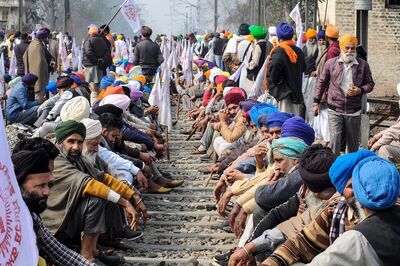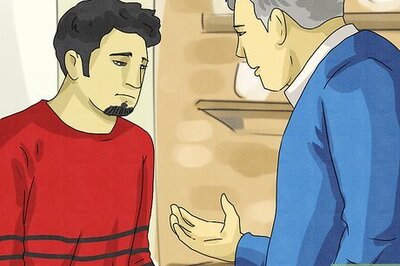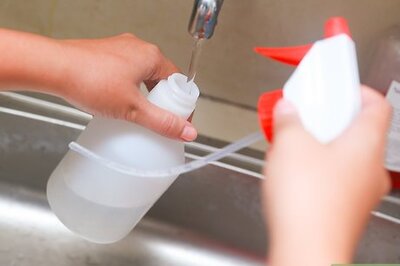
views
BANGALORE: How do you discard the biomedical waste generated by you and your family? What do you do with the unneeded pharmaceuticals, after you decide to flush them out, scared that you will get them confused with the currently-used medication? Dump it along with the general garbage? But is this really a safe or environment-friendly way to get rid of the Bio-Medical Waste (BMW)? You are putting a number of lives at risk by dumping it with general garbage.According to the BMW Rules, 1998 put forth by the Ministry of Environment and Forest, BMW shall be treated and disposed-off in compliance with certain standards prescribed. And although the domestic BMW (outdated medicines, needles, syringes with needles attached, lancets gauze, wipes to cleanse wounds, incontinence diapers and pads, etc) is not included in the standard definition, certain categories of the rule do talk about safe disposal of outdated and discarded medicines and some other BMW generated by each and every household on a daily basis.Although the health care centres across the city are under scrutiny as far as the disposal of bio-medical waste generated at these centres is concerned, there has been little, or more appropriately said, nothing done as far as treating the domestic BMW is in question.“We collect as much as four tonnes of BMW everyday from different health care centres from across half of the urban Bangalore. Although we are not dealing with domestic BMW, I assume that the city has the capacity of producing approximately one tonne of the same every month,” said M A Srinath, vice president (operations), Maridi Eco Ind Pvt Ltd, the BMW treatment plant treating BMW from South and West Bangalore.But experts feel that the domestic BMW generated can be more than the amount estimated.“With increasing numbers of medical treatments and procedures being provided in private residences, a greater volume of domestic BMW can potentially be generated by the households. Certain patients who are supported at home, regularly generate a substantial volume of BMW.These patients include those who need treatments involving intravenous therapy or injections, in-home chemotherapy and in-home peritoneal dialysis,” informed Dr Selwyn Colaco, head, medical affairs, Fortis Hospital.And the concern of safe disposal of domestic BMW is arising out of the fact that a number of health hazards can be created after the domestic BMW get mixed with rubbish and ends up in the landfills.“Domestic BMW can carry and transmit infectious diseases. The main risk to human health from domestic BMW is from the potential exposure to blood borne infections from the improper disposal of sharps. Waste contaminated with highly infectious pathogens such as Hepatitis B poses the greatest theoretical risk, although risk for transmission also exists for other blood borne pathogens such as Hepatitis C and HIV. Hepatitis B is of concern because it can remain infectious on environmental surfaces for at least seven days. Occupations with a higher level of exposure to municipal refuse, such as garbage collectors and rag pickers, have a higher level of risk,” said Dr Selwyn.Apart from the above mentioned health hazards, outdated pharmaceuticals dumped without proper treatment can seep into the surface and contaminate the underground water, which we often use for drinking.Despite the alarming situation, authorities do not seem too concerned about it. But developing a blind eye and a negligent attitude towards the same will not solve the issue. “Although the idea of collecting domestic BMW sounds good, we are still at the phase of getting done with the health centres. We are in the process of making sure that the concept first goes well with the health centres and then only can we move on to domestic BMW collection, which will take time,” said Lingaraju, senior environment officer, BMW cell, Karnataka State Pollution Control Board (KSPCB).But the lassitude exhibited on the part of the authorities is not holding back those, who understand the gravity of the issue. “We can conduct training programmes along with KSPCB to create awareness among public.However, we have already approached many apartments and we are trying to make an agreement for collection of domestic BMW.But it is the BBMP that has to make arrangements to have some storage points in each area for segregated BMW on specific days so that it can be collected by us,” said Srinath.But the BBMP also seems to be in no mood to take up any initiative. “Collection of the domestic BMW is not our responsibility, but KSPCB’s. We are only responsible for collecting BMW from health centres,” said KE Manjula, BBMP health officer.



















Comments
0 comment